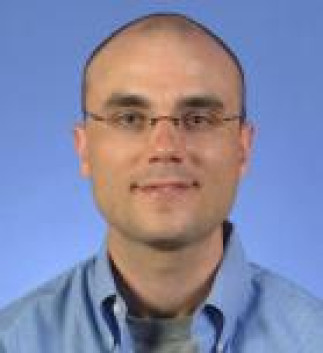Conférence de Paul Schaffer (TRIUMF)
With the imminent shutdown of some of the world's largest isotope production reactors and the number of small (<24 MeV) cyclotrons approaching 1000 machines in over 70 countries around the globe, the time is ripe to establish accelerators as a viable source of radionuclides. TRIUMF seeks to address looming shortages of important single photon-(SPECT) and positron emission- (PET) clinical isotopes such as Tc-99m and to pursue promising new applications for isotopes including Zr-89, Ga-68, Y-86 and Sc-44 that are of increasing interest to chemists, biologists and medical researchers. Isotopes both for diagnosis and therapy of a variety of diseases are being studied.
Typically, Tc-99m is made available via a generator through the decay of Mo-99, which originates from nuclear reactors. Canada has long played a pivotal role in the Mo-99 supply with a capacity of producing 80% of the world's demand from the (Chalk River) NRU reactor. This reactor is scheduled to cease isotope production activity in 2016 and an alternative production method is needed. TRIUMF, in collaboration with four other Canadian institutions is leading the effort to produce Tc-99m directly on small cyclotrons via the Mo-100(p,2n) reaction. Recent successes have seen 30 Ci (1110 GBq) of Tc-99m produced in a single 6 hr irradiation on a 450 µA TR30 cyclotron (at 24 MeV) at TRIUMF. This is sufficient to supply the province of British Columbia on a daily basis. Our goal is to enable remaining Canadian cyclotron centres to provide Tc-99m for their respective surrounding areas.
In addition to large-scale production of radiometallic isotopes using solid target materials, research at TRIUMF seeks to investigate the use of liquid targets to produce research quantities of Zr-89, Ga-68, Sc-44 and Y-86 by irradiating salt solutions of the appropriate starting material. To date, we have produced mCi (MBq) quantities of these isotopes. With this new approach, we hope to open the door for the development of novel radiopharmaceuticals that maintain a more appropriate match between the physical half-life of the isotopic tag and the pharmacokinetic profile of targeting vector. Our efforts in adapting liquid cyclotron targets for the purpose of producing radiometals will be discussed.
Finally, a brief discussion will ensue on efforts to apply Isotope Separation On-Line (ISOL) infrastructure within the ISAC facility at TRIUMF for the isolation of radiotherapeutic isotopes. Progress on the isolation of At-211 (via Rn-211 decay) and Ac-225 will be presented. Both At-211 and Ac-225 are alpha-emitting isotopes with the potential to treat micro-metastases and/or monocellular malignancies such as leukemia. TRIUMF seeks to demonstrate and enable clinical trials with these and many other potentially useful radiotherapeutic isotopes available through its existing science program.
Cette conférence s'adresse à tous, y compris les professeurs, les chercheurs et les étudiants des trois cycles.
Le café est servi à partir de 11h20.

